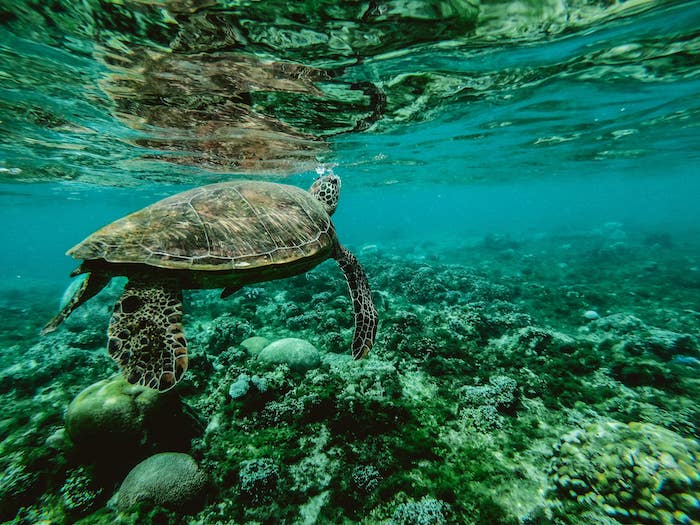People who live in areas with year-round, bright sunlight have usually a great injection of vitamin D, but at the same time are at a higher risk of skin cancer. Slopping on tons of sunscreens might prevent sunburns but did you know it has long-term negative effects on our health and environment?
Magdalena Jander’s team is developing a product that has the potential to make a serious impact on the cosmetics industry and methods of sun protection.
Palau is one of the few places that one can call paradise on Earth. It is a beautiful country that consists of more than 300 coral and volcanic islands. Tourists have been travelling thousands of miles just to see the breathtaking scenery in the western Pacific Ocean. But one day scientists decided to look below the waterline. Their discovery was shocking: sea life was in danger and the ones responsible were humans, who were trying to protect themselves from harmful UV radiation by using sunscreen.
In 2015, Dr. Craig Downs, Executive Director of the Haereticus Environmental Laboratory, discovered, that oxybenzone – a widely used ingredient in sunscreens – was killing coral reefs. The discovery led Palau to be the first country to ban several popular sunscreens. Other countries and regions are expected to follow the trend.

Palau and Poland are thousands of miles away, however, they have something in common: Magdalena Jander. The Polish Biotechnologist (PhD) and entrepreneur is the CEO of UVera, a start-up that is developing a sunscreen that is not only environmentally friendly but is also safe for humans.
Sunscreens destroy marine life
“Sunscreens are causing really harmful side-effects regarding the human health. They also have a serious environmental impact: they are destroying marine life and coral reefs. We have found a solution. It is a specific strain of cyanobacteria which is almost 2 billion years old and produces natural UV protector outside their cells,” says Magdalena Jander, who was included in the prestigious ’100 Women of the Year’ list by Forbes Women Poland in 2021 and was elected Businesswoman of the year in 2019 in the Leader of Innovative Technologies category.
As she explains, UV filters found in many cosmetic products can also enter the bloodstream and disrupt hormones. They can even increase the risk of developing skin cancer. What’s more alarming is the volume at which they are sold. According to the market research group Fact.MR, every year over 1 billion sunscreens are sold worldwide and it’s estimated to double in the next decade. This way humans are not only jeopardising the marine ecosystem but their own health as well.
“Instead of protecting us from skin cancer they might have a disruptive effect” – she explains, adding that UVera is working on protection against the full UV range.








